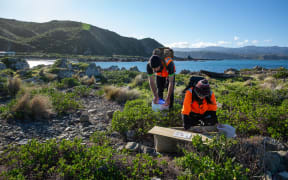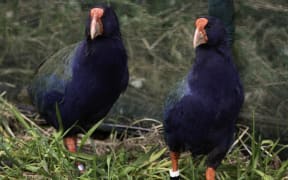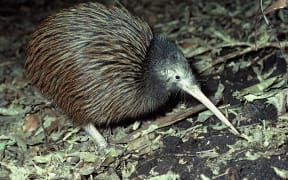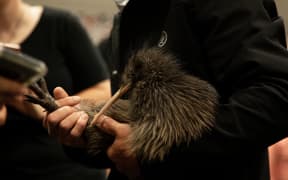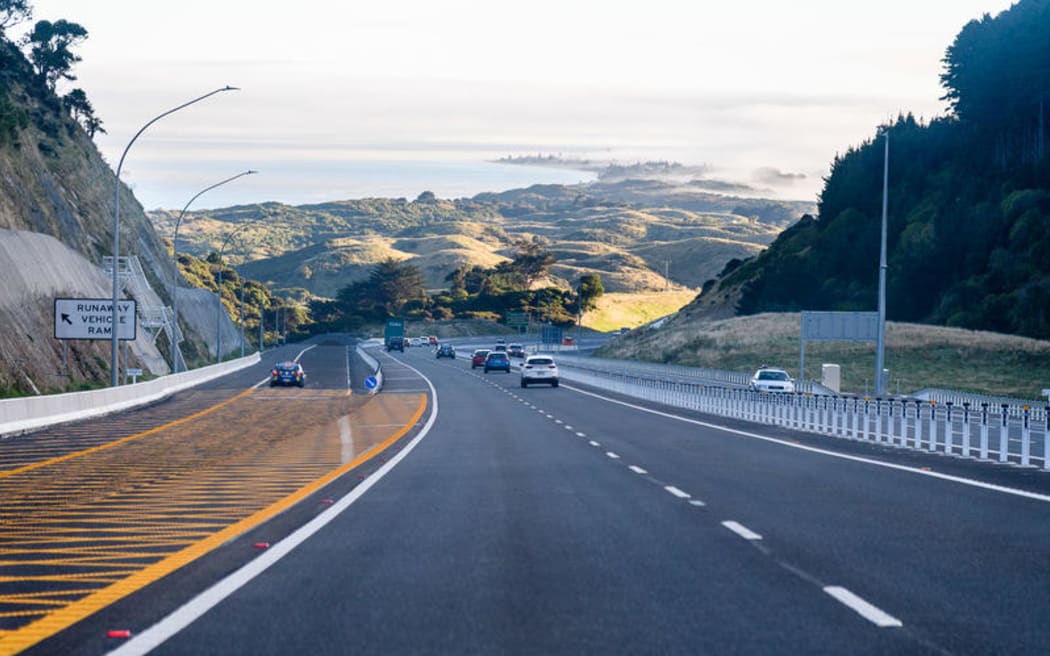
The $1.25 billion motorway is also an easy pathway for pests such as rabbits, weasels stoats and ferrets to move south towards Wellington. Photo: Mark Coote / Waka Kotahi
Greater Wellington Regional Council wants government funding to put the brakes on pests using Transmission Gully to attack the capital's endangered wildlife.
The $1.25 billion motorway north of Wellington opened last year, making it easier for drivers to come and go into the city.
But it has also made it an easy pathway for pests such as rabbits, weasels, stoats and ferrets to move south towards Wellington.
Greater Wellington Regional Council is particularly concerned about the ferrets using the road due to their ability to kill adult kiwi, like the birds introduced to the Mākara hills as part of the Capital Kiwi Project.
A ferret was found dead on the road as far south as Haywards earlier this year.
The regional council believes if the situation is left unchanged it will reverse significant pest eradication results that have been achieved by groups such as Predator Free Wellington and Capital Kiwi Project.

Greater Wellington Regional Council chair Daran Ponter. Photo: Shanon Stevens / Greater Wellington
Greater Wellington Regional Council chair Daran Ponter has penned a letter to the Minister of Transport calling for funding to deal with the pest issue on the road.
Ponter said despite the benefits, when a new highway was created, it also created "a pest highway".
"To keep those pests under control requires a reasonable amount of operational funding, year in, year out to ensure that the pests that could be travelling through those areas are effectively killed."
He said it was important to fund the pest control for the motorway, given the hard work of Wellingtonians to protect wildlife in recent years.
"If we don't have a view to controlling pests coming into the region, then we just undermine the millions of dollars of work that we have successfully put into those pest control initiatives already which in just a few short years could be wiped out by a lack of foresight."
Predator Free Wellington project director James Willcocks supported the regional council's calls for government funding.
"It would be considerably cheaper than trying to eliminate ferrets if they did get into Wellington City, so that kind of idea of trying to deal with something before it becomes an issue is a good thing from my perspective."
Willcocks said the animals would cause a lot of damage.
"The arrival of ferrets, cause we don't have them as far as we know in the Wellington City area now would be absolutely catastrophic."
Capital Kiwi Project lead Paul Ward said there was a range of ways pests such as ferrets moved along the landscape.
"There's a rule of thumb with trapping stoats and ferrets which is the three R's - roads, ridges and rivers - they are all things we keep an eye on."
Ward said roaming dogs and ferrets were the biggest threats against adult kiwi.
"It's critical that we look after those adults because they are the breeders to grow and sustain a wild population of kiwi."
Transport Minister Simeon Brown confirmed he had received the letter.
Brown said he would be discussing a range of matters with councils including with Greater Wellington Regional Council.

